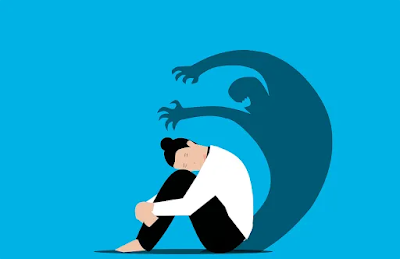The Impact of Social Media on Mental Health: An Overview
Social media has revolutionized the way we communicate, connect, and share information. With billions of people using social media platforms like Facebook, Instagram, and Twitter, it has become an integral part of our daily lives. While social media has many benefits, such as facilitating communication and providing access to information, it also has its downsides. Research has shown that excessive use of social media can have a negative impact on our mental health. In this article, we will explore the impact of social media on mental health and provide tips for managing its effects.
1. Comparison and Self-Esteem
Social media is often used as a platform for comparison, whether it be comparing yourself to others or comparing your life to the highlight reels of others. This constant comparison can lead to a decrease in self-esteem and feelings of inadequacy. Studies have found that individuals who spend more time on social media are more likely to experience symptoms of depression and anxiety.
2. Cyberbullying
Cyberbullying is a form of online harassment and can have serious effects on mental health. Victims of cyberbullying may experience anxiety, depression, and even suicidal thoughts. Social media platforms have taken steps to combat cyberbullying, but it is still prevalent on many platforms.
3. Sleep Deprivation
Many people use social media before bed, which can interfere with sleep patterns. Blue light emitted from screens can interfere with the production of melatonin, a hormone that is essential for sleep. Getting enough sleep is crucial for maintaining good mental health, and the overuse of social media can have a profound impact on sleep quality.
4. Addiction
Social media can be addictive, and excessive use can lead to addiction-like symptoms. Individuals who spend a significant amount of time on social media may experience withdrawal symptoms when they try to cut back. Addiction can lead to a variety of mental health issues, including depression and anxiety.
5. Fear of Missing Out (FOMO)
Fear of missing out, or FOMO, is a common phenomenon among social media users. Social media platforms are designed to keep us engaged, and the fear of missing out on important information or events can lead to feelings of anxiety and stress. Research has shown that individuals who experience FOMO are more likely to experience symptoms of depression and anxiety.
Tips for Managing the Impact of Social Media on Mental Health
1. Limit your time on social media
Set limits for yourself and stick to them. This can be as simple as setting a timer for the amount of time you spend on social media each day.
2. Be mindful of how social media makes you feel
Pay attention to how you feel when you use social media. If you notice feelings of anxiety or stress, it may be time to take a break.
3. Practice self-care
Taking care of your mental health is essential. Make sure you are getting enough sleep, eating a balanced diet, and engaging in activities that make you happy.
4. Connect with people in real life
While social media can be a great way to connect with others, it is important to also connect with people in real life. Spend time with friends and family, engage in hobbies, and participate in community events.
Conclusion
Social media has become an integral part of our daily lives, but its impact on mental health cannot be ignored. Excessive use of social media can lead to a variety of mental health issues, including depression, anxiety, and addiction. By being mindful of how social media makes us feel and practicing self-care, we can manage its effects and maintain good mental health.








